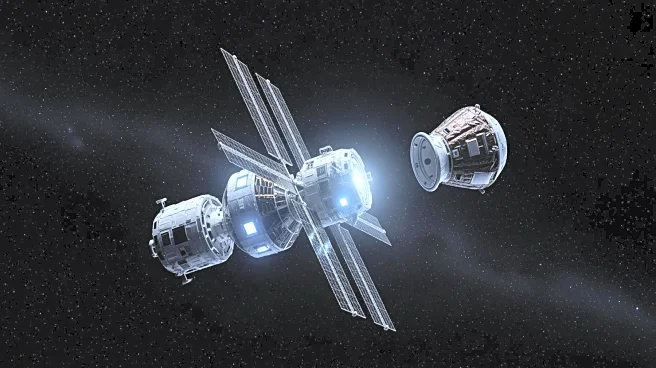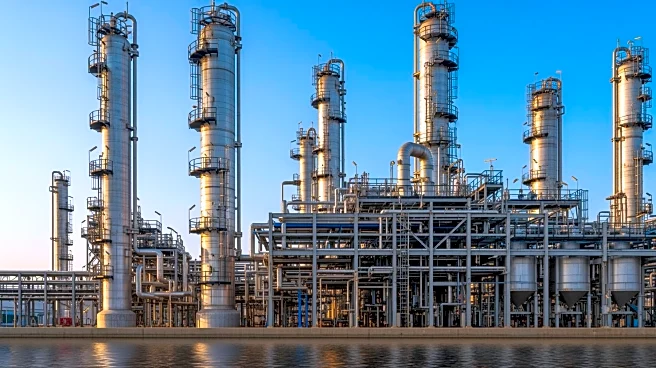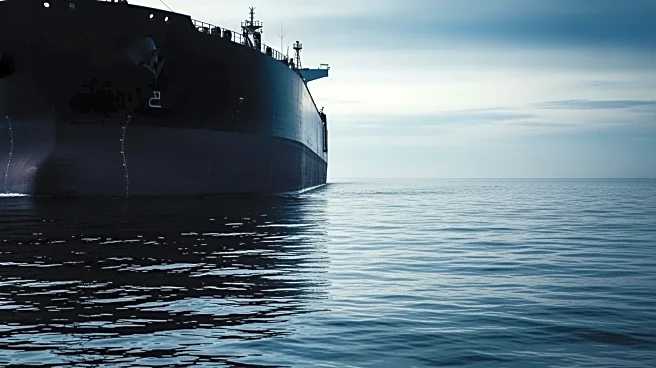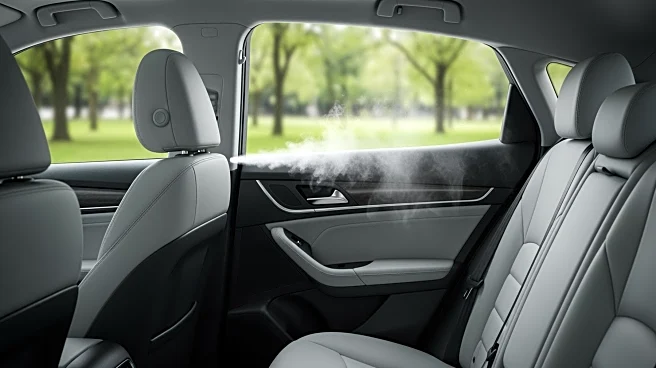What's Happening?
The Chinese Manned Space Agency (CMSA) is addressing a safety issue involving the Shenzhou-21 crew, who are currently stranded aboard the Tiangong Space Station without a dedicated return vehicle. This situation arose after the Shenzhou-20 crew returned
to Earth using the Shenzhou-21 spacecraft due to damage in their original return capsule. The damage, a crack in the window glass, was likely caused by space debris, rendering the Shenzhou-20 capsule unsafe for manned reentry. As a result, the CMSA repurposed the Shenzhou-21 spacecraft for the outgoing crew's return, leaving the new crew without an escape capsule. To resolve this, China is accelerating the launch of an uncrewed Shenzhou-22 spacecraft, which will serve as an emergency lifeboat for the Shenzhou-21 crew.
Why It's Important?
This development highlights the challenges and risks associated with human space exploration, particularly the vulnerability of crews in orbit without a return vehicle. The situation underscores the importance of having contingency plans and emergency protocols in place for space missions. The CMSA's rapid response to launch the Shenzhou-22 spacecraft demonstrates the agency's commitment to ensuring the safety of its astronauts. However, the incident raises concerns about the reliability of spacecraft and the potential impact of space debris on mission safety. The stranded crew's predicament also draws attention to the need for international cooperation and support in addressing space safety issues.
What's Next?
The CMSA is preparing to launch the Shenzhou-22 spacecraft to provide a lifeboat for the Shenzhou-21 crew. The launch is expected to occur as early as November 25, 2025, according to airspace closure notices. This rapid deployment is possible due to the Chinese space program's protocol of keeping a Long March 2F rocket and Shenzhou capsule ready for emergencies. The fate of the damaged Shenzhou-20 spacecraft remains uncertain; it may be repaired in orbit or decommissioned and sent out of orbit over the Pacific Ocean. The CMSA will need to undock the damaged capsule to make room for the Shenzhou-22 spacecraft's arrival.
Beyond the Headlines
The incident highlights the growing issue of space debris and its impact on the safety of space missions. As more countries and private companies engage in space exploration, the risk of debris-related incidents increases, necessitating international collaboration to address the problem. The situation also emphasizes the importance of developing more robust spacecraft designs and technologies to withstand potential impacts. Additionally, the stranded crew's experience may lead to improvements in emergency protocols and contingency planning for future missions, ensuring better preparedness for unforeseen challenges.















